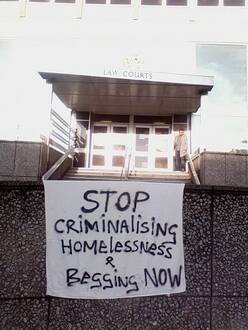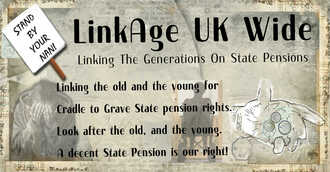-
Stop Taking Away Motability CarsWithout my car, I'm not safe. I use my vehicle to get to work, the supermarket, the shops, the cleaners, the hairdressers, to visit family, to volunteer, to do everything I need to do. Without my car, I cannot get about. I cannot safely walk to the bus stop, and should I use public transport I have no guarantee that my mobility will remain long enough for me to get to my destination or even get home. I've been stranded in city centres and other places because I used public transport and then wasn't strong enough to return to a bus stop and get home. Many people with motability vehicles rely on these to get by. Without my car, I couldn't work. If I can't work, I can't pay my rent. If I can't pay my rent, I don't have anywhere to live - disabled people are facing these choices today. Many disabled people have 'mild-moderate' support needs. That means, social services cannot afford to help them in this climate of cuts and their only way forward is disability benefits or a motability vehicle. Without the motability vehicle, we become vulnerable. We can exert ourselves, get weaker, get to a place where we become more reliant on the state, cannot work, cannot socialise and collectively cost more in healthcare. That argument doesn't matter though. What matters is that collectively we have a right and a need to access a full and equivalent life and bit by bit rights are being stripped away. Re-evaluate and stop removing people's motability cars.595 of 600 SignaturesCreated by Hannah-Rebecca Joy Guscoth

-
Save The Willows GP SurgeryThe Practice Group plc (a private company) has been running The Willows Surgery in Lower Bevendean along with four other GP surgeries in Brighton and Hove. At the beginning of this year they announced that they would no longer be running their Brighton and Hove surgeries after June (this already follows the closure of two of the city's GP surgeries last year). This announcement has left a huge hole and The Willows is now threatened with closure. Lower Bevendean is in a somewhat isolated area on the outskirts of Brighton. It is an area of mostly low income households and is made up of largely council and ex-council housing. The surgery has just under 2,000 patients and all have been feeling extremely anxious since the news. No-one wants to see their GP surgery close down! If The Willows were to close patients would have to travel outside their local area to see a doctor. The nearest GP to Lower Bevendean would be a long trek up and down a hilly area and as a large number of The Willows patients are elderly or disabled or in poor health they would not be able to manage the extra travel to see a Doctor. Even if travelling wasn't a problem, the nearest GP surgery simply has not got the capacity to take on an extra 2,000 patients. So realistically patients would have to travel a lot further to register with a new GP. As there seems to be no 'highest priority' scheme in place, the elderly and the less able bodied will be the last in the race to find a new GP and will find themselves having to travel the furthest. We've heard reports of elderly patients in tears as they are so worried about what will happen if their doctor disappears from their community. The less frail residents are angry. Why must they travel across the city to see a doctor? How is it possible that an NHS GP will vanish from the neighbourhood because the private company who were running the surgery decided that they wanted to earn more profit from us? In order to keep our NHS public we need to fight the 'behind our backs' privatisation of our health services! We need to make sure that our health service is about people and not profits! The community in Lower Bevendean need your support in their fight to stop the closure of The Willows GP Surgery. The community of Lower Bevendean needs to have local access to a GP and they require NHS England, along with Brighton and Hove CCG to ensure that a GP service will continue at the Willows Surgery !1,403 of 2,000 SignaturesCreated by Mitchie Alexander
-
Stop Cutting Essential Mental Health Services in the UKPlease Read Carefully....Thanks :) I live with chronic depression, associated anxiety neurosis and constant suicidal ideation too, which is unbearable at times,however,these are just labels forced upon me by mainstream psychiatry. I despise being labelled,especially when I feel these are wrong,inappropriate or clinically incorrect,so I'm constantly up against 'the system' (ironically who I've worked for too,in a number of specialist mental health roles,hence my anger at being labelled so seemingly randomly,by a string of locum/passing through psychiatrists who barely know me as a real and wholesome person at all), but I do my best to get by daily with support from friends,former workmates and my army comrades too. I intend to petition Caroline Lucas of the Green Party,to simply realise how essential these services are.There are increasing numbers of suicides daily, particularly where people suffering with PTSD issues are concerned,including all forces veterans and equally as important,as many civilians too, that's a fact sadly. One suicide today is one too many, so let's all fight to stop this now!!404 of 500 SignaturesCreated by Bill Reay

-
Kent County Council Open up Empty Buildings for the Homeless in KentIt is a sacrilege and a disgrace to have so many empty buildings (paid and subsidised by us the tax payers) when they could be used for greater good. KCC do the right thing and open up your empty buildings to the homeless now!!!123 of 200 SignaturesCreated by Joanna Burns
-
Make all calls to the Department for Work and Pensions free.Because charging struggling families up to 55p a minute to claim vital benefit payments by phone is extortionate. Universal Credit, families will be forced to call an 0345 number, incurring charges of up to 55p a minute to claim their benefits. It’s difficult enough as it is living on disability benefits without being charged 55p/ minute to call the DWP. More often than not it’s their mistake you’re rectifying when you call, I don’t see why anyone should be charged such an extortionate fee for simply making a phone call.189,902 of 200,000 SignaturesCreated by Jim Binderman
-
Launch a crowdfunding campaign to get delegates to Young Labour Conference #YL16Despite attempts to persuade him privately, Iain McNicol, General Secretary of the Labour Party, is refusing to budge on the cost of Youth Conference. Labour are already charging elected delegates £40 for their conference pass (seven times the national minimum wage for most young members), this is without provision for accommodation or travel, meaning in reality the cost of Youth Conference will come to £200 or more for most delegates. This is the first Youth Conference in two years and the first youth elections conference in three years. Delegates have been elected by the entire youth membership regionally to represent them at #YL16, the lack of funding to get delegates there is pricing young members out of democracy and only the Party can resolve this issue. Unless this issue is resolved, Young Labour's democracy runs the risk of looking like that of pre-universal suffrage Britain, in which only those with wealth will have the right (or ability) to vote; the Chartists, whose struggle led to the creation of the Labour Party, would not be impressed.187 of 200 SignaturesCreated by Max Shanly
-
ESA FIT FOR WORK ASSESSMENTI have a tribunal appeal coming up 4th Feb 2016, after been found fit for work. Even though I had to take ill health retirement from my job of 17 years. Due to Psoriatic Athritis. All medical evidence was disregarded. The assessment process is purposely flawed to find people fit for work. It must be stopped as people are dying due to this. Please support me in my fight to end this governments agenda to destroy the benefits system. If anybody in the Halton area wishes to attend the tribunal, its being held at Runcorn Courts Halton Lea at 11am Thursday 4th Feb.27 of 100 SignaturesCreated by Bernie Thornton
-
U.K Disabled Veterans being asked to apply for Personal Independence Payments.It is important that all disabled veterans are supported by the government as it is the same government that placed them in areas of conflict that has resulted in them requiring financial supports as a result of the injuries they received while serving their country this including loss of mobility, loss of their ability to maintain their basic personal care, ie such as washing dressing, nutrition. Please support this petition to ensure that those U.K veterans who have been left permanently disabled do not also find themselves financially disadvantaged due to the these changes. Ian Duncan Smith needs to remove this process, provide a fair system and be forced to support disabled veterans and not just on Poppy Day. It will only take a few minutes of your time, but a life time of difference to improve the quality of life for disabled veterans.21 of 100 SignaturesCreated by Stewart White

-
Stop Criminalising Homelessness and BeggingIncreasing numbers of homeless people are being arrested for begging around the country. In 2013-14, 2771 cases were brought before the courts, a 70% increase on the previous year. Police use an archaic law which deems those found begging to be 'idle and disorderly'. Begging was made a recordable offence in 2003 against the strong criticisms of civil rights groups and homelessness organisations. Those prosecuted can be fined up to £1000 excluding court charges when found with just a few pennies. Those who have 'gathered alms' (that is, accepted money, food or other material goods offered to them) can be prosecuted under this same law with the same consequences. Some people are kept in cells for several nights. Although begging in and of itself is not an imprisonable offence, if the person is already on bail for another case a simple arrest for begging can lead to imprisonment. Those who are fined will inevitably have to beg more to pay off these fines, risking further arrests and fines, a punishment which stands out in its absurdity. Punishing the destitute for trying to survive is both costly and morally abhorrent. It is a waste of tax payers' money which is spent paying police who 'catch people out' in organised undercover operations, as well as on court cases to prosecute them. The minimum cost of bringing one case to the Magistrates' Court is £1000, meaning that in the year 2013-14, bringing begging cases before the courts cost the taxpayer at least £2.777 million. This is money that could be spent helping people rather than punishing them. Police also routinely move homeless people on under part 3 of the Anti-social Behaviour, Crime and Policing Act (2014) which gives police the power to confiscate property and exclude individuals from a particular area for up to 48 hours, with the officer also able to impose by what manner and route the person must leave. Failure to comply is a criminal offence which can result in a £2500 fine or 3 months in prison. Refusing to surrender your property is punishable by a fine of up to £500. The two conditions needed by officers to issue a dispersal order are firstly, that the constable has 'reasonable grounds to suspect that the behaviour of the person in the locality has contributed or is likely to contribute to (a) members of the public in the locality being harassed, alarmed or distressed, or (b) the occurrence in the locality of crime or disorder, and secondly, that the constable considers that giving a direction to the person is necessary for the purpose of removing or reducing the likelihood of (a) or (b)'. Given that begging is a crime considered 'idle and disorderly', the two laws in tandem essentially give police de facto power to exclude any homeless person from any area simply because they think it is likely that the person, being homeless, might beg there. The highly subjective definition of 'anti-social behaviour' as that which contributes or is likely to contribute to members of the public in the locality being harassed, alarmed or distressed reinforces this and even with the decriminalisation of begging, would still give police the power to move on any homeless person from any area simply because they believe doing so is necessary for the purpose of removing or reducing the likelihood of members of the public being distressed by seeing them. Seeing people forced to live on the streets is distressing to much of the public for good reason, but this compassionate distress means that under this definition a homeless person is considered to be exhibiting anti-social behaviour simply by existing visibly. The anti-social behaviour that causes the public distress is not caused by the homeless person however, but by the authorities' failure to provide people with shelter in a country that has 600,000 empty homes. As described by someone living on the street, being asked to move on when you have nowhere to go is like being asked to walk into a brick wall. These laws and their enforcement victimize vulnerable people who are already suffering the daily struggle of life on the streets or in insecure and unstable temporary accommodation. We believe that kicking someone for limping when it is you who cut off their leg is shameless and cruel. We believe that the government should be providing homes for the homeless, not handcuffs. We therefore call on parliament to repeal without replacement section 3 of the Vagrancy Act (1824), to amend part 3 of the Anti-social Behaviour, Crime and Policing Act (2014) to safeguard homeless people from its discriminatory use, and for an ultimate end to the criminalisation of homelessness by any and all other laws that may be newly concocted or dug up for this purpose. If you have an MP who may be sympathetic, get in touch with them to push this issue to parliament. We launched this petition at our demo at Brighton Magistrate's court on the 20th January.750 of 800 SignaturesCreated by J J
-
To allow claimants of Tax Credits email certain departments.When claiming Tax Credits, the only options you have available to you are that of phone calls, and letters. I have recently been in touch with Tax Credits, and found to my great frustration that the only way the staff will communicate with you is via phone, or writing. This would be okay if the phones were answered in a timely manner, or that the post was direct to the department that it is intended to go to. I have had my post lost, I have had my calls unanswered, and have been cut off. And have now missed an important deadline. If there was a dedicated email address for the departments listed above, I would have had a paper trail, and not missed the deadline. I am not asking for personal emails to be known, just one where claimants can send relevant information through.4 of 100 SignaturesCreated by Charlotte Saunders
-
Increase the State pension for "ALL" our War Veterans. We owe them, big time !!PLEASE SIGN AND SHARE MY PETITION, AND KEEP SHARING. We demand the State pension is re-linked to male average earnings, or inflation, whichever the higher to protect the value of the State pension against means testing, this link should be restored. Britain's WW2 Veterans particularly, but of course all pensioners, including pensioners living overseas should be included, because they have also contributed to Britain's economy over the decades and State pensions should be increased as British prosperity increases, or inflation increases, whichever the higher. Without this Generations past efforts and sacrifices during WW2, none of us would be here today. I have drafted a petition standing up for our living WW2, Veterans, because we all owe our very existence today to the efforts and sacrifices made by this generation of pensioners during WW2.. BUT my petition also demands better State pensions for ALL pensioners, giving a level of State pension they can live on, including overseas pensioners whose pensions are "frozen". They have also contributed to the British economy over the decades. So instead of our Government throwing money into overseas aid that buys fancy cars for dictators, or benefits countries that don't need it, and stop other ways our government waste money... So far Government have refused to act saying there is no money, but there is plenty of money gets sent abroad for various things that could and should be spent back on us, the British people. Particularly we owe the WW2 Generation of pensioners everything we can give them, because they made the ultimate sacrifice, for us! We ask Jeremy Corbyn & Parliament to include woman who stayed at home raising families, and who have paid little or no contributions due to not doing "paid" work, but who worked hard at home bringing children up, raising families, and making sure their husband's had a home to come home to at the end of the War. Also remember the impoverished and neglected war widows.... Also the woman during WW2, who worked in the fields and the Factories, their efforts must not be left out! This Generation have given us everything. They fought for our freedom during WW2. Yet we give them nothing but misery, made to live on a pittance of a State pension. HOW MANY WORLD WAR TWO PENSIONERS ARE GOING TO DIE OF COLD AND/OR STARVATION THIS WINTER BECAUSE THEIR STATE PENSION ISNT ENOUGH TO LIVE ON. ?. Winter deaths claim 200 pensioners every day. Millions of elderly people in Britain today are living in poverty, having to choose between eating, and heating their homes because the UK's State pension is so low. Britain’s War veterans have been forgotten by this and previous Tory Government’s. We urge the Government to increase the basic State pension to at least £300 a week, and the State pension should have increases linked directly with male average earnings or inflation, whichever the higher. “OUR WW2 VETERANS FOUGHT FOR THE FREEDOM OF EUROPE; THEY WERE SHOT & STABBED ON THE BEACHES IN NORMANDY””. WHEN THE WAR ENDED THEY PAID INTO THE SYSTEM THROUGH THEIR WORKING LIVES. AND WERE PROMISED “CRADLE TO GRAVE” CARE, WHICH THEY ARE’NT GETTING.... THEY LIBERATED FRANCE AND THE REST OF EUROPE – AND YET BRITISH PENSIONERS RECEIVE THE LOWEST STATE PENSION IN WESTERN EUROPE THANKS TO MARGARET THATCHER IN 1980, BREAKING THE LINK THAT KEPT STATE PENSIONS INCREASING DIRECTLY WITH BRITISH PROSPERITY... AND ALL THE MEMBERS OF PARLIAMENT WHO HAVE MILLIONS TO SPEND ON LAVISH EXPENSES; AND THE GERMAN PENSIONERS GET FOUR TIMES MORE THAN UK PENSIONERS IN WEEKLY STATE PENSION. ENOUGH IS ENOUGH!”;27,797 of 30,000 SignaturesCreated by Michael Thompson

-
Keep the elderly in their own homesMears helps the elderly to remain in their own homes. Elderly neighbours and relatives have found this service vital when they did not know who else to turn to. The cost is reasonable and the workmen are very good and caring.5 of 100 SignaturesCreated by Heather Gould
Hello! We use cookies to improve your experience by providing insights into how the site is being used. Find out more.





.jpg)






